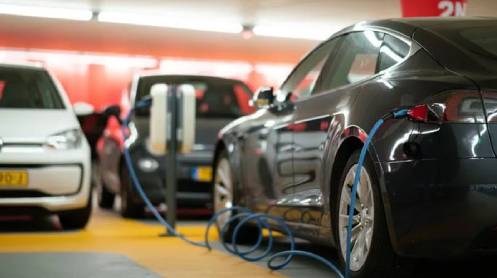BERLIN: Sales of new battery-powered vehicles in Germany fell sharply by 27.4% in 2024, highlighting significant challenges for the nation’s auto industry, according to official data released Monday.
Germany’s KBA federal transport authority reported that only 380,609 electric vehicles (EVs) were registered out of 2.8 million new vehicles sold, marking a 13.5% market share. Overall vehicle sales in Europe’s largest car market declined by 1% compared to the previous year.
EY analyst Constantin Gall called 2024 a “lost year for electro-mobility,” attributing the decline to the termination of government EV subsidies at the end of 2023. Additionally, high prices, limited charging infrastructure, and concerns over driving range deterred potential buyers.
The downturn in EV sales underscores broader challenges in Germany’s auto sector, which has faced declining demand and struggled with a transition to electric vehicles. The crisis has led to widespread job cuts among manufacturers and suppliers, becoming a contentious political issue ahead of the February 2025 elections.
Critics argue that Germany’s economic struggles are exacerbated by policies pushing for an accelerated switch to electric vehicles, which they claim have destabilized the industry. The nation is also expected to log its second consecutive year in recession for 2024, with limited optimism for 2025.
“To revive EV sales, bold measures are required, particularly addressing affordability,” Gall said, suggesting that a new government support program could significantly boost demand. However, given the weak economic outlook, only a modest rise in vehicle sales is expected in the coming year.







